Naturally, there are positives and negatives associated with these developments; people are more exposed to each other’s cultures and traditions than ever before. Not so long ago, many Western countries (America in particular) used to have the prevailing stereotype of Africa being backwards, lacking technological innovation and populated by indigent men and women with lions in their gardens. But today, thanks to social media and other online platforms, Africans and other nationalities can represent themselves authentically; sharing their cultures, dismantling stereotypes and changing their own narratives.
We are no longer limited to face-to-face interactions. Skype, FaceTime, Facebook, Instagram and other online platforms let us replicate the real thing. We can conduct business, have meetings, or just have a quick chat with someone on the other side of the world. But, with most forms of communication, its interpretation is a relative and subjective process which can lead to challenges and conflict across social spectrums. We’ve seen them happen between individuals, groups, users and brands, brand on brand and so on. The power, accessibility and voice the internet has afforded us has created great opportunities, but has given some people inordinate power, bringing out their impulsive and cold-hearted natures. We’ve all become far too familiar with the terms “internet trolls” and “cyberbullying”.
As some forms of communication become less personal, social intelligence has become more critical than ever. Essentially, social intelligence is the ability to adapt to different social contexts, and to behave and react competently within them. It covers a range of skills and social practices, such as active listening, understanding roles, and rules, as well as different personalities to create meaningful relationships and continuously improve our communication abilities.
Donald Trump provides the quintessential example of a lack of social intelligence. He takes to Twitter to voice his frustrations or insult anyone, from celebrities to politicians, sometimes even his own team. This doesn’t align with our understanding of “presidential”. These acts can instantly turn public opinion. The President of the United States essentially represents the brand of America. The expectation is that people, particularly those in positions of power, consider their actions and practice social intelligence, even if it’s just 280 characters.
Many brands, however, have established rules to ensure that people, whether consumers, employees or followers, behave appropriately online. These rules have, unfortunately, become necessary, as the instances of blocking and reporting have increased. The digital world, perhaps even more than the physical one, needs social intelligence. It’s much easier to misconstrue meaning digitally (text in particular) than with face-to-face interaction.
Social intelligence is the key with which brands can build better and more meaningful relationships with their customers. Market and customer research is a great way to become more socially intelligent; companies need to understand their audience deeply and empathise with their situations in order to meet their needs and build loyalty and trust. Similar to this is social listening — an incredibly useful tool to understand and monitor sentiment around your business or brand, allowing you to mitigate any potential issues or find opportunities to connect with your audience. It’s vital that organisations keep up with the latest developments in industry-related markets. And, moreover, create a culture of lifelong learning, providing workshops, short courses and seminars for their employees, allowing them to develop emotional and social intelligence, among other Uniquely Human Skills. These are the essential skills that separate us from our robotic and computerised counterparts. Red & Yellow weaves them into all of our courses and programmes in order to future-proof our students.
The more human brands are, the better. While developments like AI and bots have streamlined many business and commercial processes, it has also taken out the vital human element. While we all think that what we really want is convenience and instant gratification, most abhor dealing with robotic, automated responses whether on the phone or online. Human nature, behaviour and language are full of nuances technology cannot yet understand. The need for the human touch is one of the few things that are guaranteed in our uncertain future.
Earlier this year Netflorist came under fire for messing up a large number of Valentine’s Day orders. Wilted flowers, melted chocolates and gifts riddled with spelling mistakes arrived on doorsteps across the country. Worse still, some orders didn’t arrive at all, breaking their promise of “same-day delivery”. As expected, customers took to social media to vent, and air their grievances with others. This kind of online conversation is damaging for any brand. Netflorist took the human stance of owning their mistakes, apologising and promising to make right by their customers. Consequently, the Valentine’s Day fiasco only had a temporary impact on their business. This is a simple example of how social intelligence can restore faith, alleviate tension and improve relationships. Ideally, they should have alerted customers to the potential problem beforehand. But learning these kinds of lessons as we go along is in essence, human, and lead us to better performance, understanding and higher social intelligence.
Humans, brands and organisations need to listen, be open-minded and, furthermore, be adaptable within our ever-evolving world.
Social Media Marketing is a perfect example on how to use data analytics to gain business intelligence and manage communities. Search Engine Optimisation is also a good way to learn the tools to use for auditing your site, and increase website traffic to optimise all the elements for the best outcomes. Project Management and People Management will help you learn social skills and promote collaborative methods between team members, centred around effective communication throughout various stakeholders in order to achieve project goals and objectives.

Tsholanang Seakamela is part of the Red & Yellow graduate programme. She loves people and all things social. Believer and teacher, aspiring nomad and hopes to be Beyonce’s best friend one day!


